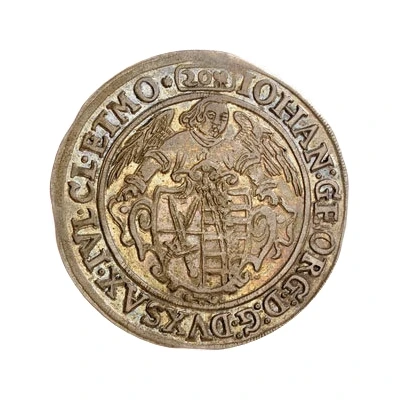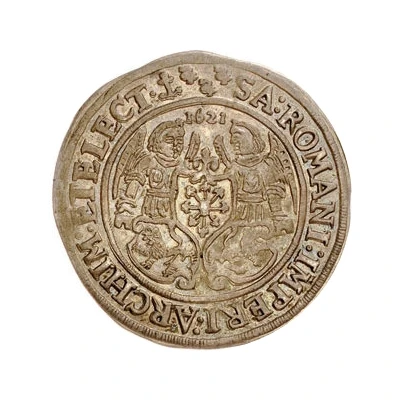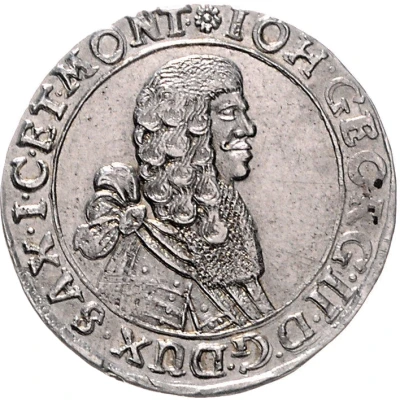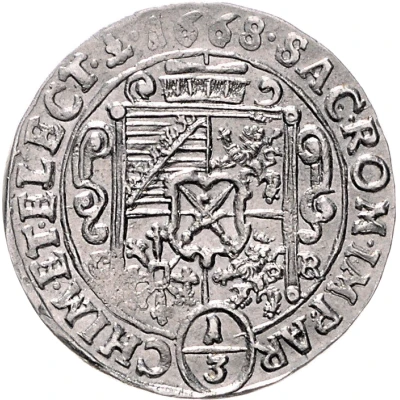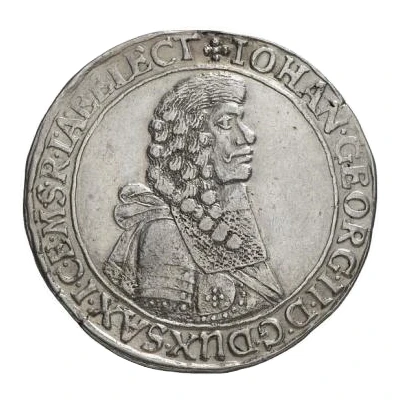
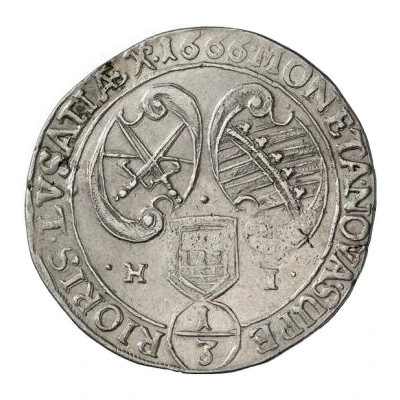

© Heidelberger Münzhandlung Herbert Grün e.K.
⅓ Thaler - John George II
| Silver | - | - |
| Issuer | Electorate of Saxony (Albertinian Line) (German States) |
|---|---|
| Issuer | Electorate of Saxony (Albertinian Line) (German States) |
| Prince elector | John George II (Hans Georg II) (1657-1680) |
| Prince elector | John George II (Hans Georg II) (1657-1680) |
| Type | Standard circulation coin |
| Type | Standard circulation coin |
| Years | 1666-1668 |
| Years | 1666-1668 |
| Value | ⅓ Thaler |
| Value | ⅓ Thaler |
| Currency | Thaler (1493-1805) |
| Currency | Thaler (1493-1805) |
| Composition | Silver |
| Composition | Silver |
| Shape | Round |
| Shape | Round |
| Demonetized | Yes |
| Demonetized | Yes |
| Updated | 2024-10-05 |
| Numista | N#187868 |
|---|---|
| Rarity index | 97% |
Reverse
Three arms, the lower seperating the mintmasters initials, denomination at bottom in legend in brackets, date on top in legend.
Script: Latin
Comment
Minted for usage in Upper LusatiaInteresting fact
One interesting fact about the ⅓ Thaler coin from the Electorate of Saxony (Albertinian Line) is that it was minted during a time of great economic and political change in Europe. The coin was issued during the reign of John George II, who was the Elector of Saxony from 1666 to 1668. During this period, the Holy Roman Empire was facing economic challenges, including inflation and debasement of the currency. The ⅓ Thaler coin was minted as a response to these challenges, as it was intended to be a stable and reliable form of currency. The fact that it was made of silver, which was a valuable and durable metal, further reinforced its value and reliability. Despite the challenges of the time, the ⅓ Thaler coin remained a widely used and trusted form of currency throughout the German States.
